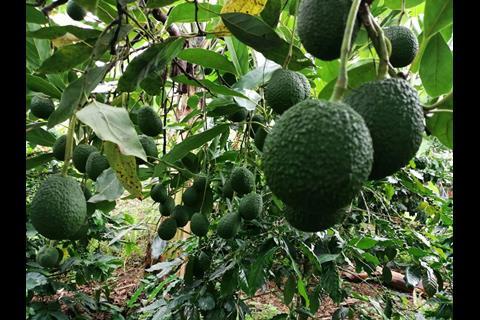Kenyan export consultant says East African producers stand to benefit from competitive production and labour costs as UK importers look to keep down costs and avoid red tape
Brexit and inflation have increased opportunities for fruit and vegetable producers in East Africa, according to Kenyan export consultant Paul Kyalo.
Kyalo’s consultancy business Konza Tropicals supports producers and exporters across East Africa to access international markets, gain certifications, develop their branding, and arrange the necessary export documents.
The Kenyan entrepreneur is an avocado grower and exporter himself and has a 240-hectare farm near the Tanzanian border that is set to begin exports for the first time in June 2023. His company is called Fruityard Limited.
Brexit has created new opportunities for African producers, according to Kyalo, because many UK importers and retailers are now keen to buy produce from outside Europe in order to keep down costs and avoid red tape.
As former British colonies and members of the Commonwealth, Kenya and Uganda are well placed to increase their presence on the UK market, he says, and Kyalo has witnessed an increase in demand for exotic fruits, herbs and vegetables.
With supply chain inflation continuing to shape the fresh produce sector, East African producers and suppliers stand to benefit from their “competitive” production and labour costs, Kyalo says.
However, he emphasises that airfreight rates continue to be a major challenge and sometimes mean it is more economical for UK importers and retailers to source from closer to home.
Rates trebled during the pandemic and have since come down, but they remain at almost double the levels seen in 2019. This has made it hard for Kenya to compete with growers in North African countries such as Egypt and Morocco which are in closer proximity to the UK and can transport their produce at lower cost by ferry and road. Moroccan exports to the UK – of tomatoes and other produce – have risen significantly since Brexit.
In a bid to keep down shipping costs, Kenya has made efforts to export more produce by sea, but transit times and cold chain infrastructure mean this is only possible in a select few products such as avocados and certain vegetables.
Major flower producers in Kenya such as UK supplier Flamingo Horticulture have also begun shipping cut flowers by sea for the first time.
Flamingo has now sent almost 100 containers of cut flowers to the UK by sea and there has been no reduction in quality compared to airfreight, according to group technical and procurement director Ian Michell.
“We’re working on a project with the British High Commission and the Kenyan government to open up the Port of Mobasa to be more available for perishable exports as it is currently more geared up for ambient goods,” he says.
“They’ve already made it easier by putting in a green lane for moving produce through the port more quickly, and there are now more points where you can plug in [reefer] containers.”





